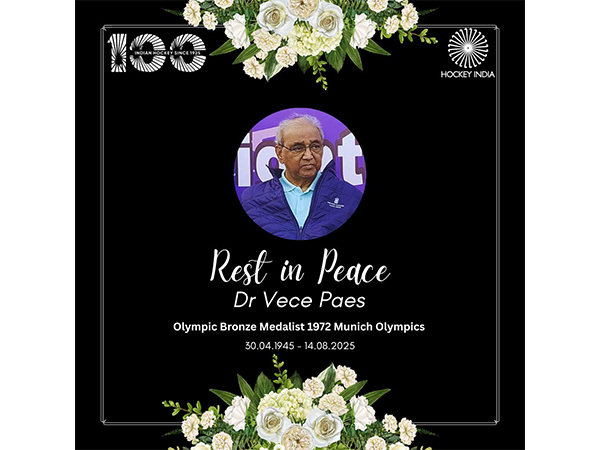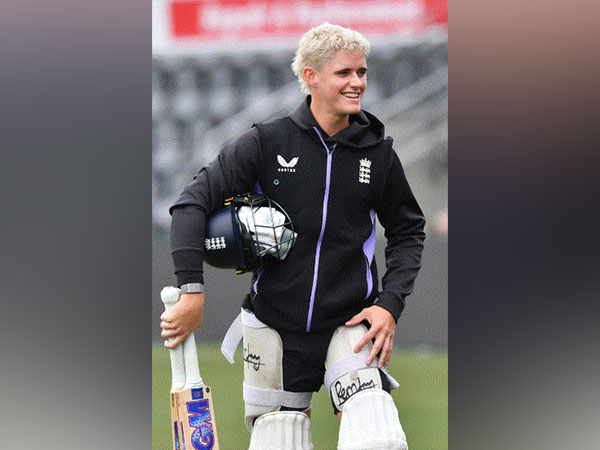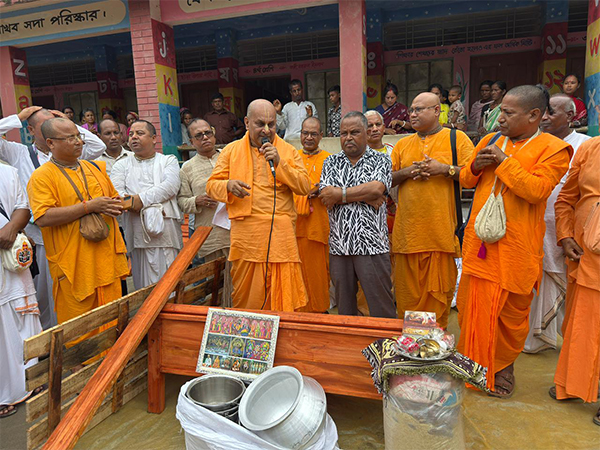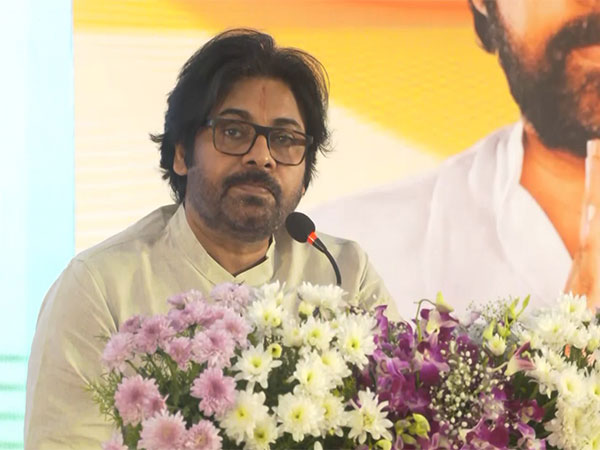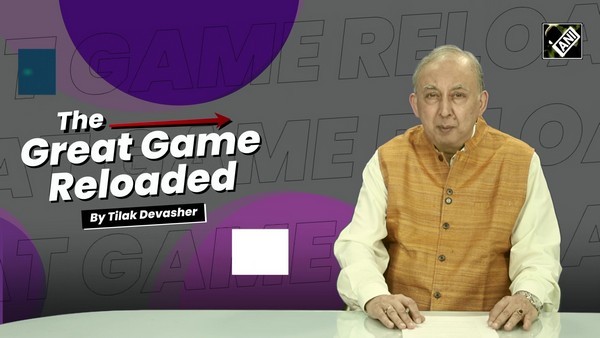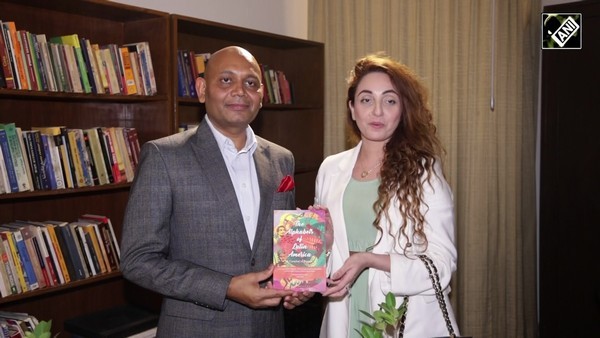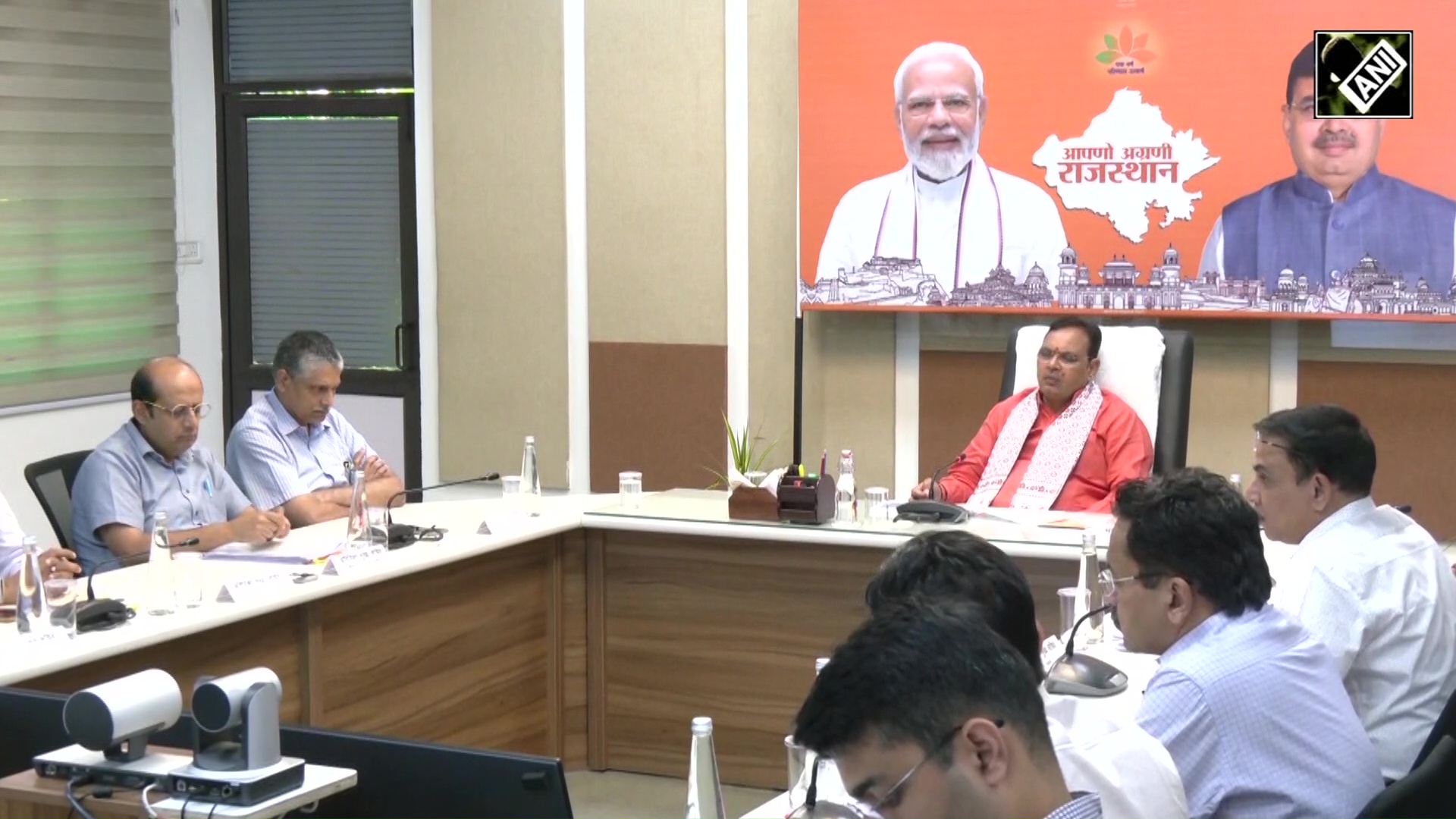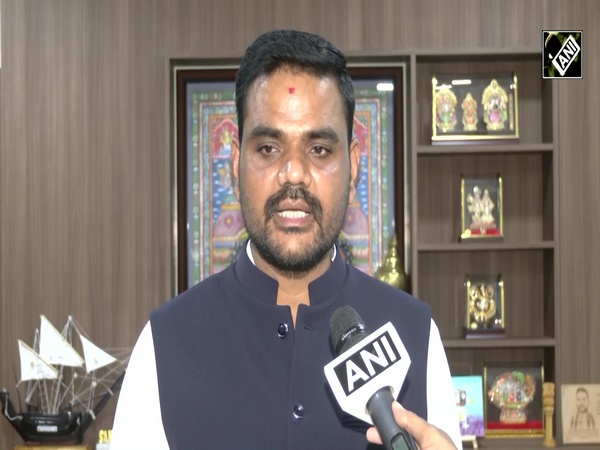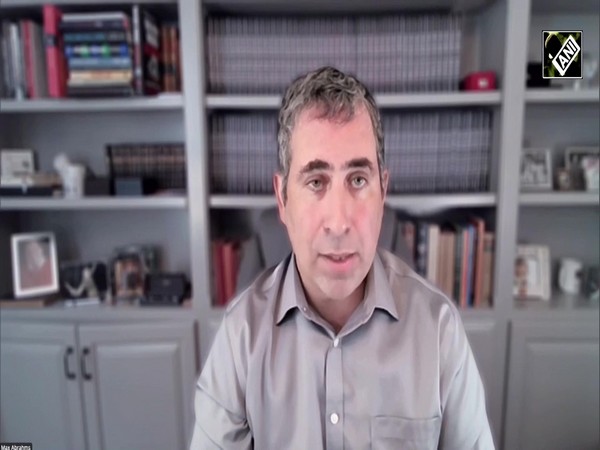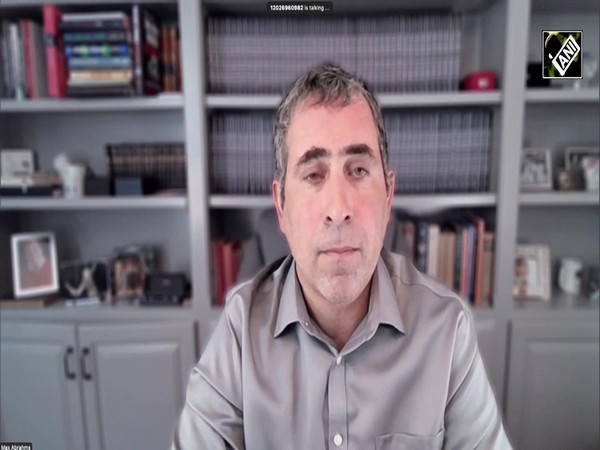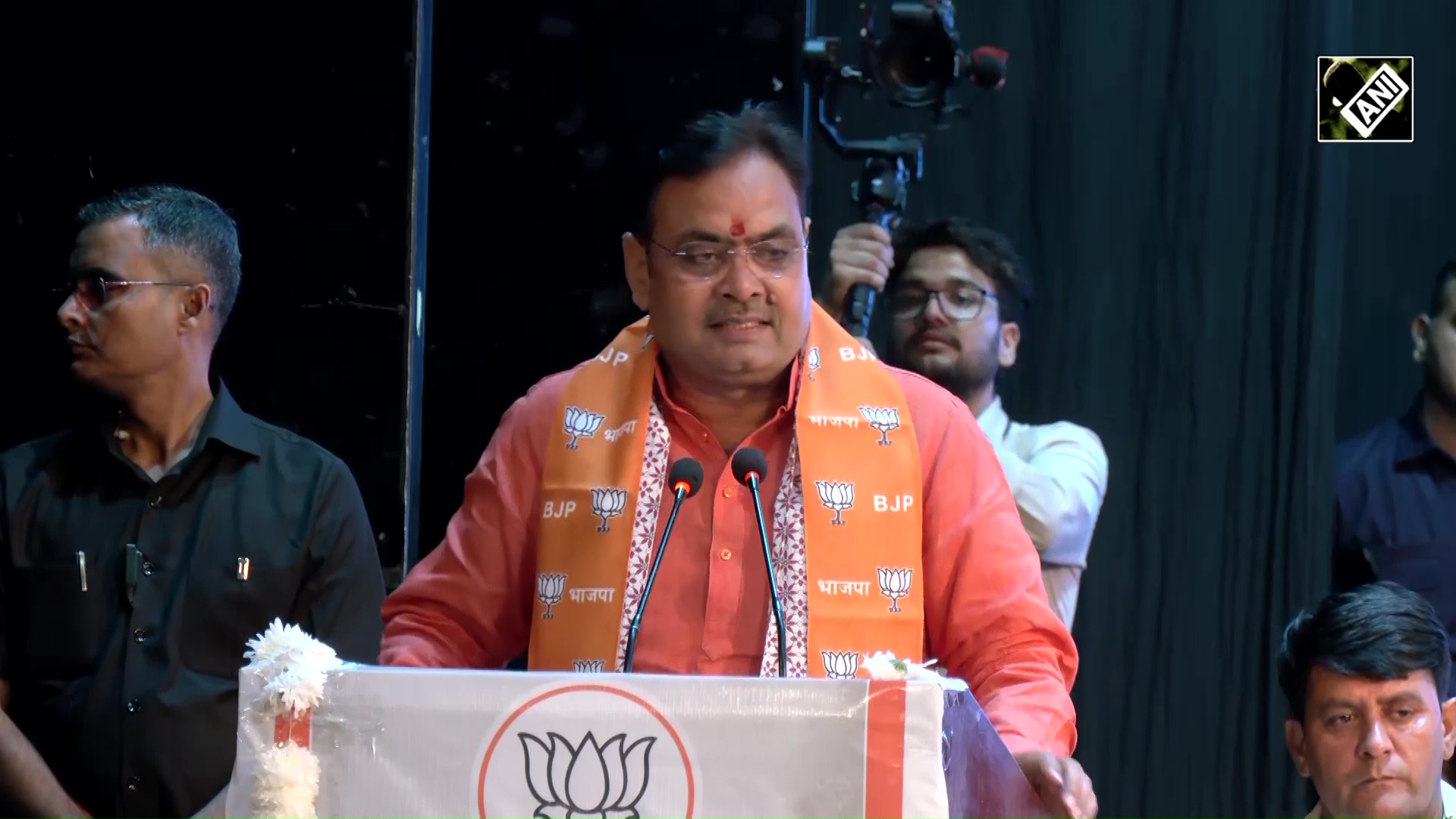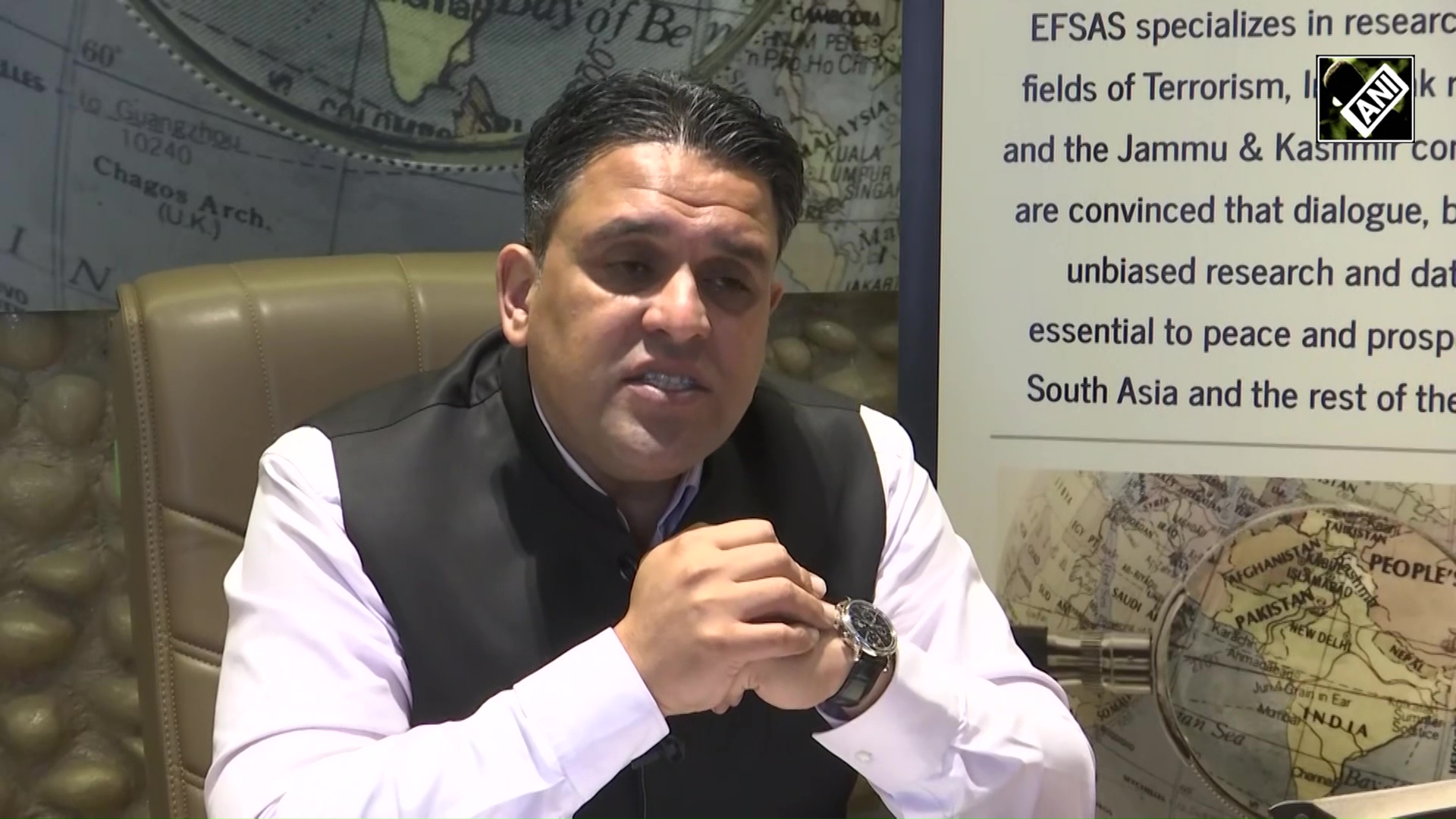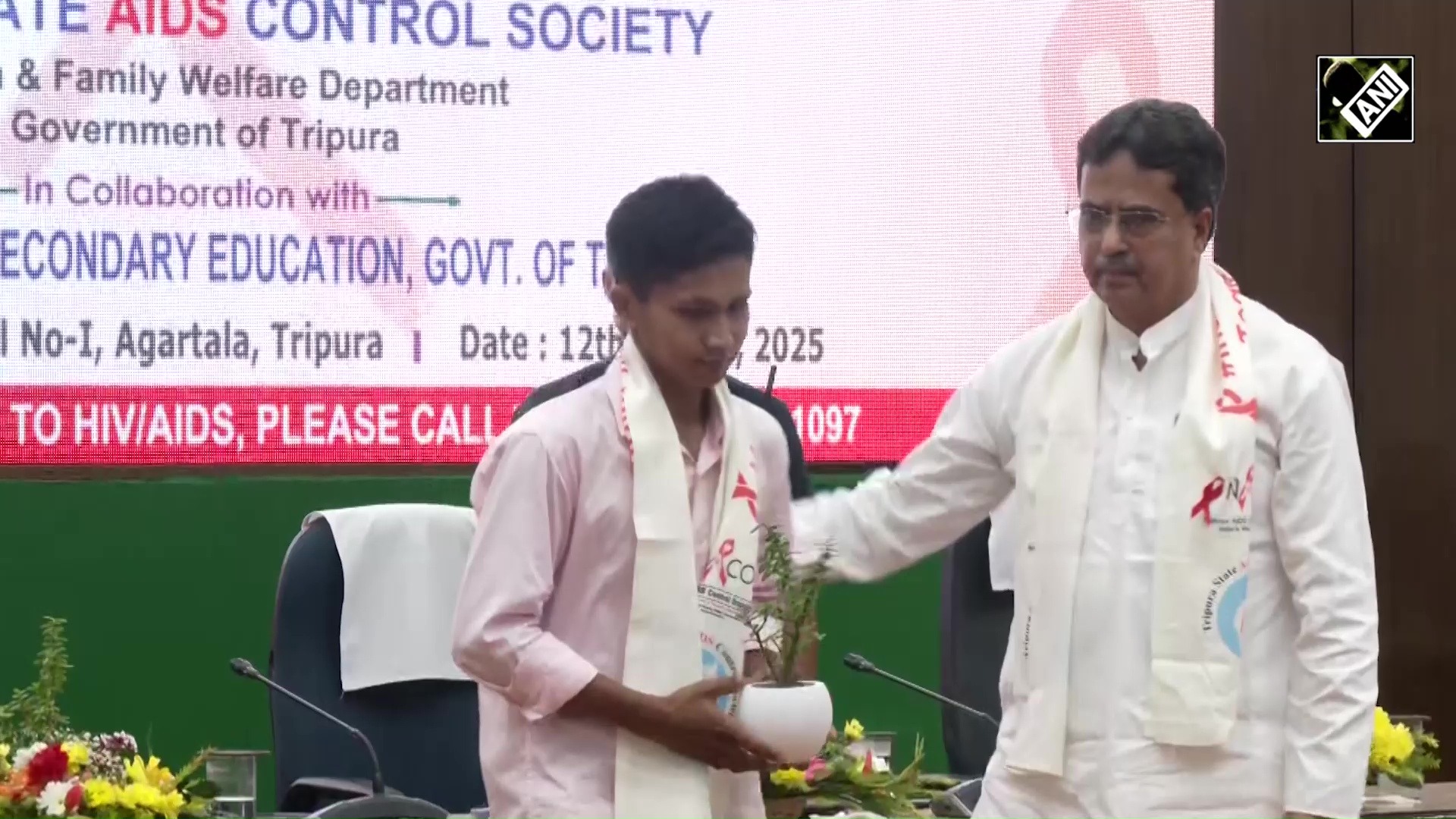"My standard was of I-League when I joined Sporting Lisbon": Former Indian football captain Sunil Chhetri
Dec 08, 2024

New Delhi [India], December 8 : Former Indian football captain Sunil Chhetri shared his personal journey and the challenges he faced in professional football, particularly during his stint with Sporting Lisbon. Chhetri discussed the differences in conditioning and fitness levels between Indian players and their foreign counterparts.
Chhetri recalled an incident where he was told in Sporting Lisbon that he was not good enough and should move to Team B.
Reflecting on that time, he said in said in an exclusive interview to ANI, "Yeah. Those, not the Indian team, but at that time, I felt so. Because I went there, I had signed for Sporting Lisbon, I trained with the A team for like a week. Before that, my training, my level, my standard was the standard of I-League, which I was playing there. Suddenly, when I went from here to there, Sporting Lisbon at the time, and even now it's one of the best clubs in Europe and in the world, the jump was too high for me."
To explain the challenge, he used an educational analogy.
"I was in class 3, and suddenly I went to class 10. And my teacher told me, friend, You don't know, you have no idea what trigonometry is. Go and study. I was just reading normal Maths and then I had to go and study Pythagoras' theorem. So I couldn't understand it. And then I was, it doesn't mean that any Indian kid here won't be able to do it. But then the step has to be taken really early. So let's suppose if I was in Sporting Lisbon when I was 17. I went there when I was 25. I didn't understand in 17, I didn't understand in 18, I will understand in 20," Chhetri added.
Chhetri highlighted the importance of early exposure to high-level training.
"So I think it's one of those things where the step was too high for me. And slowly the gap is going to be bridged. Slowly because our league is getting better, it'll take time. And slowly, slowly after 20 years when you meet the next whoever is going to sit here. And when you ask him or her, they will tell you, no, it wasn't that difficult. But it's going to take time. The children of Sporting Lisbon Academy what they were learning at 12 years, I learnt that when I was 24. So that difference becomes exponential," he said.
Reflecting on his experience at Sporting Lisbon, he said, "I was on the bench. They benched you and then in one case, you were told that not good enough for team A and play for Team B? And it was, you know what, it was so bad for me because when I was back in the country, I was really someone. I didn't want to say number one, but I was someone. So it's so difficult to digest. Now, when that was happening, when I came back to my apartment in Lisbon, you are alone. There's no family. There's no one who can say... 'It's okay. It'll be okay'. So it was so difficult."
Chhetri acknowledged the importance of a support system during tough times.
"And I'm not trying to give any excuses. But it matters. It matters when tough time comes. And it was really tough. You need your support system. People around you. And the sad part was... I couldn't even call back home. And tell them that this is what is happening. Because there was so much expectations. Whoever I spoke... 'Ah we are so happy. We know you are doing really good for the country.' How do I tell them that I'm not? I'm suffering here. It is difficult. I'm not in the main team. I have to go to the B team. And it's difficult," he said.
Despite the hardships, Chhetri found strength in his resolve, "Because it's sports, it teaches you. Go on. Okay you are feeling bad. That's fine. That's one day. Tomorrow, get up. Go at it again. Because there is no choice. What are you going to do? What are you going to do?"
He reflected on overcoming the fear of failure and taking responsibility for his actions.
"After a point, it differs from person to person. After a point, how much have you cried? You cried, you felt bad about yourself. Why is this happening to me? My fate is bad. How long will I do this? We all do it. We are human. It's not my fault, it's his fault. I don't know why it's happening. Either you blamed the coach, or God. You will blame someone. But after all that, you'll get tired, right? That you have to do something yourself. And even after doing it yourself, you might not get success. But later on, you will not regret that I didn't give my best," he said.
Chhetri emphasized the importance of giving one's best effort regardless of the outcome.
"Because whatever you do at the time, success is not guaranteed. More so in sports. The margins are so low. So, when you're going to give your best, even at adversities, the one thing is guaranteed, you will not have regrets. Because in the next 10 years, you can reach wherever you want to reach, that's not guaranteed. But at least you won't be sad that I didn't give my best," he added.
He shared how sports helped him cope with setbacks.
"After a point I said, enough. I cribbed, I blamed, I blamed the whole world. But after a point of time... And because sports... Every day you gotta go and train... So you have less time to cry. It's not that luxury that.... It's not that sports people don't cry, they don't get sad. But tomorrow is training. Tomorrow I have to get beaten up in training. Then I have to run. Like a dog. In a nice way I'm saying. So... You get less time to... Which, on the hind side, it's a very individual feeling. Good that I'm in this sport. In this career. Good that I get less time to cry and feel sad about myself and my conditions. Good. Whatever happened, it happened. I cried. I did what I had to do. There's training tomorrow," he said.
He highlighted the constant cycle of training and matches as a grounding force.
"Training was outstanding. Great. Don't feel outstanding. Be humble. You'll get abused again tomorrow. You came tomorrow. You got abused again. Again. People praised you a lot. Good. Keep head down, you'll get abused again tomorrow. So because I've played 24 years, I've been pampered and abused almost every other day. So I know now, this is what football is, this is what life is. Not every day is going to be good. So give your best. That's in my hands," he noted.
Chhetri explained how physical exertion during training and matches helps distract from negative emotions, "It impacts the day before. The other day, I'll tell you why it doesn't impact that much. Because physically, your heart rate has 150. So I'll give you a small example, you'll understand. So if I ask him to feel any feeling, good or bad. Let's suppose good feeling that he had a great time with his mom and dad. Great dinner. That feeling he is thinking about. Or a bad time where he flunked in school For example If at that time I tell him that you have to come down the stairs from top to bottom in 2 minutes running fast. And if he goes and does that, then ask him about the feeling he will not be able to answer. Because you know what he will be doing? You won't feel anything else."
He elaborated, "So you know you have heard so many times in games where they say, this man lost his father, this man had a tragic thing, but he still went and played. Actually, it helps. Because when the whistle blows, you can't think. And I know it's not easy, I'll give you an extreme example so that you understand what I'm saying. It's a very extreme example. But a normal example, like if I ask you to go and run crazy for 3 minutes, you can't think any other thing, you can't feel. You're just thinking what's happening now. When you're sweating and your heart is like this, you can't think, that I paid the GST. I have to pay the income tax. You can't think. Then when you come back after the match, you'll be cold, you've had an ice bath. Then you'll have problems at home. This didn't happen, that didn't happen. But it won't come in the game. So that's the beauty of it. So no matter how sad or happy we are, when we train, it's just training. It's so high-paced, you can't think."
Sunil Chhetri's professional football journey began at Mohun Bagan in 2002. Throughout his illustrious career, he helped India secure victories in the 2007, 2009, and 2012 Nehru Cup, as well as the 2011, 2015, 2021, and 2023 SAFF Championships. He also led India to triumph in the 2008 AFC Challenge Cup, which facilitated India's qualification for its first AFC Asian Cup in 27 years.
The Arjuna Award winner has scored 94 goals in 150 international matches, making him the most-capped Indian footballer and the fourth-highest goal-scorer globally, with legends Cristiano Ronaldo and Lionel Messi ahead of him.
Chhetri's achievements have been recognized with numerous honors, including the Arjuna Award in 2011, the Padma Shri in 2019, and the Khel Ratna Award in 2021, making him the first footballer to receive India's highest sporting honour.
